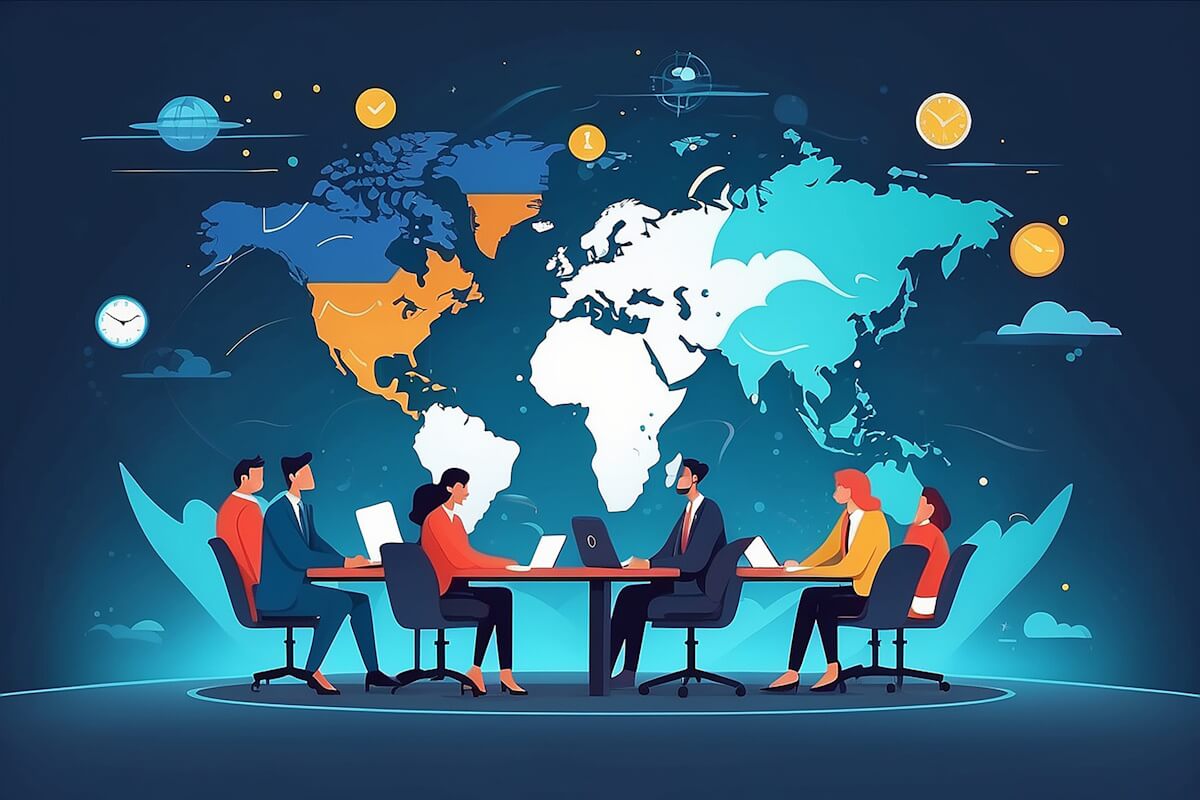In today’s globalized world, it is increasingly common for teams to be spread across different countries and time zones. While this can lead to increased diversity of thought and ideas, it can also present challenges when it comes to resolving conflicts. In this article, we will explore some effective strategies for resolving conflicts in global teams.
Communication is Key
One of the most important aspects of conflict resolution in global teams is effective communication. Misunderstandings can easily arise when team members come from different cultural backgrounds and speak different languages. To avoid these misunderstandings, it is important to encourage open and transparent communication within the team.
- Encourage Regular Check-Ins: Schedule regular check-ins with team members to ensure that everyone is on the same page and to address any potential conflicts early on. This allows team members to express concerns and provide updates, fostering a sense of unity.
- Use Multiple Communication Channels: Utilize various communication channels, such as email, video calls, and instant messaging, to accommodate different preferences and time zones. This ensures that information is shared effectively and that all team members can participate in discussions.
- Clarify Expectations: Clearly communicate roles, responsibilities, and expectations to avoid confusion and minimize conflicts. Setting clear expectations helps in establishing accountability and preventing misunderstandings.
Understand Cultural Differences
Cultural differences can play a significant role in how conflicts are perceived and resolved. It is essential for team members to understand and respect each other’s cultural norms and practices to prevent conflicts from escalating.
- Cultural Sensitivity Training: Provide cultural sensitivity training to team members to help them understand and appreciate different cultural perspectives. This training can enhance empathy and promote cultural awareness within the team.
- Encourage Cultural Exchange: Encourage team members to share their cultural traditions, practices, and values to foster mutual understanding and respect. This exchange can create a sense of inclusivity and strengthen team bonds.
- Seek Mediation: In case of a conflict arising from cultural misunderstandings, seek mediation from a neutral third party who is well-versed in both cultures. Mediation can help in facilitating constructive dialogue and finding common ground.
Foster Team Collaboration
Collaboration is essential for resolving conflicts in global teams. By promoting a collaborative environment, team members can work together to find mutually agreeable solutions to conflicts.
- Focus on Common Goals: Remind team members of the common goals and objectives they are working towards to shift the focus away from individual interests. Emphasizing shared objectives can unite team members and promote cooperation.
- Encourage Team Building Activities: Organize team building activities, such as virtual team lunches or group projects, to strengthen relationships and promote collaboration. Building rapport outside of work tasks can improve communication and trust.
- Celebrate Diversity: Embrace the diversity within the team and use it as a strength to foster creativity and innovation in conflict resolution. Different perspectives can lead to more innovative problem-solving approaches.
Implement Conflict Resolution Processes
Having clear and structured conflict resolution processes in place can help global teams address conflicts efficiently and effectively.
- Establish a Conflict Resolution Policy: Develop a formal policy outlining the steps to be taken in case of conflicts, including communication protocols and escalation procedures. A well-defined policy provides guidance and ensures consistency in resolving conflicts.
- Designate a Conflict Resolution Team: Assign dedicated team members or a committee to handle conflict resolution processes and ensure impartiality. Having a designated team can streamline the resolution process and maintain fairness.
- Encourage Feedback: Encourage team members to provide feedback on the conflict resolution processes to continuously improve and refine them. Feedback helps in identifying areas for enhancement and promoting a culture of continuous improvement.
In conclusion, conflict resolution in global teams requires a combination of effective communication, cultural understanding, collaboration, and structured processes. By implementing these strategies, teams can navigate conflicts successfully and foster a positive and productive working environment.
FAQs:
1. What is the importance of communication in conflict resolution in global teams?
Effective communication is crucial in resolving conflicts in global teams as it helps prevent misunderstandings, address conflicts early on, and clarify expectations.
2. How can cultural differences impact conflict resolution in global teams?
Cultural differences can influence how conflicts are perceived and resolved, making it important for team members to understand and respect each other’s cultural norms to prevent conflicts from escalating.
3. How can team collaboration help in resolving conflicts in global teams?
Team collaboration promotes finding mutually agreeable solutions to conflicts by focusing on common goals and encouraging team building activities.
4. What strategies can be used to address conflicts arising from cultural misunderstandings in global teams?
To address conflicts arising from cultural misunderstandings, strategies such as providing cultural sensitivity training, encouraging cultural exchange, and seeking mediation from a neutral third party can be employed.











+ There are no comments
Add yours